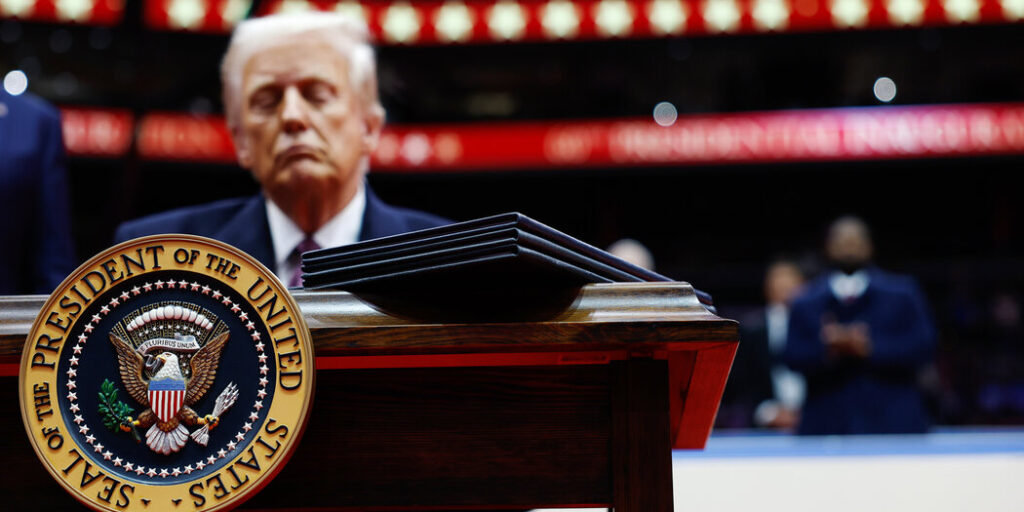Trump’s Executive Orders: Actions and Controversies in Focus
The commencement of Donald Trump’s presidency was marked by a series of executive orders, aimed at signaling swift action. This approach is reminiscent of the early days of previous administrations, such as Bill Clinton’s, where executive orders often served more as public statements than enforceable directives. For example, Barack Obama’s notable executive order to shut down the Guantánamo Bay prison remains unfulfilled.
A key focus of Trump’s recent executive actions is the pardoning of individuals involved in the January 6 Capitol riot, despite widespread criticism. This decision has drawn parallels to past comments by JD Vance, who stated, “If you committed violence on that day, obviously you shouldn’t be pardoned.” Nonetheless, Trump’s pardons included prominent figures from the Proud Boys and Oath Keepers, raising concerns about endorsing anti-democratic actions.
Constitutional Challenges and Immigration Policies
Among the executive orders, one particularly contentious decree aims to end birthright citizenship, which is protected under the 14th Amendment. Legal experts argue that this action is unconstitutional, as affirmed by the Supreme Court in 1898. The order’s broad scope seeks to deny citizenship to children born in the U.S. under specific parental circumstances, affecting individuals like Nikki Haley and Vivek Ramaswamy.
Trump’s administration has also taken steps to address illegal immigration, a significant topic during his campaign. He has indicated plans to use historical laws, such as the Alien Enemies Act, to facilitate deportations. Additionally, directives were issued to NORTHCOM to craft a military strategy against what is termed as an “invasion” due to mass migration. This move raises questions about the military’s role on domestic soil and its potential implications.
These actions echo the contentious decisions from Trump’s previous term, where similar executive orders faced legal challenges due to procedural errors and constitutional concerns. The current situation presents a crucial test for the judiciary, particularly the Supreme Court, in addressing these broad and unprecedented measures.
Public Opinion and Political Landscape
The public response to Trump’s actions is notably critical, with a Washington Post poll indicating that two-thirds of Americans oppose the pardons for January 6 participants. Furthermore, only a minority support altering the Constitution to end birthright citizenship. Despite the Republican Party’s control of Congress, these executive actions are likely to spark significant public debate and scrutiny.





